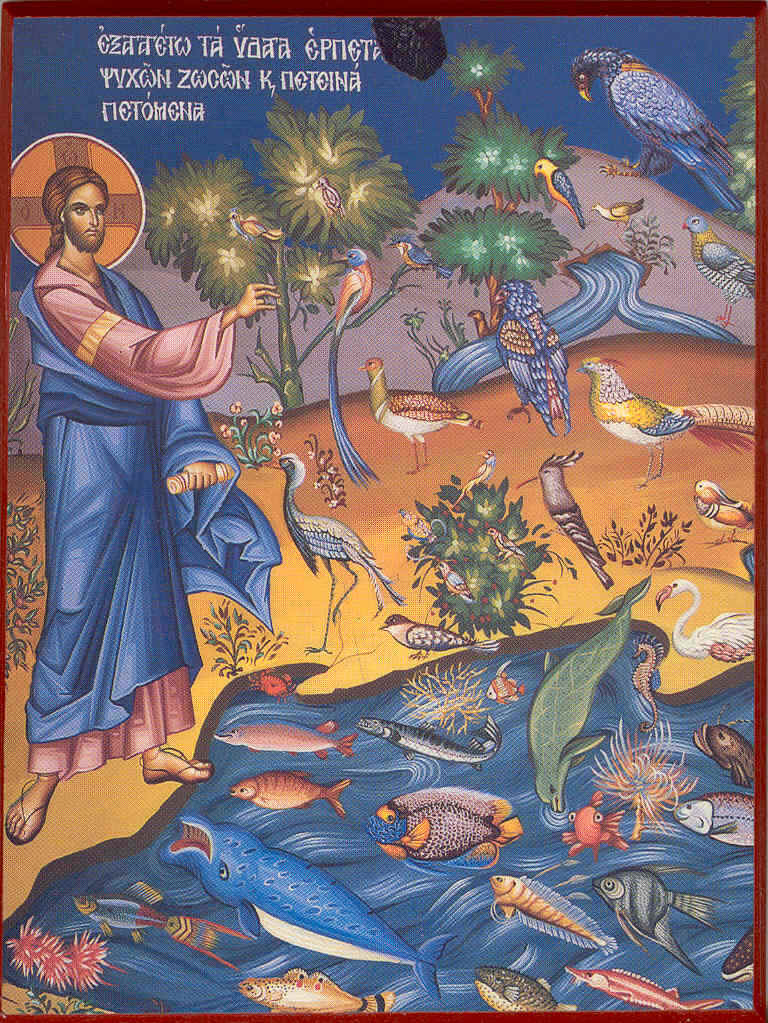

Diocese
of St. Paul the Apostle
Be Wise as Serpents and Harmless as Doves
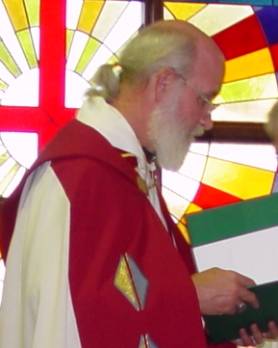
The Most Rev Dr Michael Milner, D.Min., Th.D., Ph.D.
Chairman & Co-founder, International Free Catholic Communion
Bishop, Diocese of St. Paul the Apostle
In ordained ministry for over 25 years, Bishop Milner, a Franciscan contemplative, has established a number of churches and seminaries in the United States and Latin America and has had extensive personal experience with many of the great world religions, their spiritual practices and teachings. He travels widely giving retreats and workshops on Centering Prayer and the Christian Contemplative Tradition.
Bishop Milner is also a Graduate of the Federal Law Enforcement Training Center (FLETC), Glynco, GA, "Training the Trainers" Program for Domestic Violence and is certified by FLETC and the U.S. Dept. of Homeland Security as a Domestic Violence Trainer for Clergy, Chaplains, Law Enforcement, Social Workers, Therapists, DV Advocates, etc.


The Bishop is available for spiritual direction, speaking engagements, seminars and retreats.
Possible topics include:
Centering Prayer and the Christian Contemplative Tradition
Dynamics of Domestic Violence: Breaking the Inter-Generational Cycle
Franciscan Spirituality
The Pauline Epistles and the Mystery of God Within
Ephesians 6 - The Whole Armor of God
Different Kinds of Prayer: The Right Tool for the Right Job
Intercessory Prayer
Eastern Orthodox Spirituality: The Jesus Prayer
Life in the Spirit: Spiritual Gifts and Divine Healing
Worship Life
Catholic Doctrines
Mystical Theology
Spirituality East and West
The Great World Religions
Taoist Meditation and Chi Gung
...and more.
For more information or to schedule a seminar or retreat email or write:
Bishop Michael Milner
300 Feather Tree Drive
Clearwater, Florida 33765
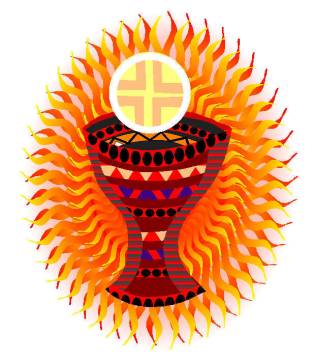
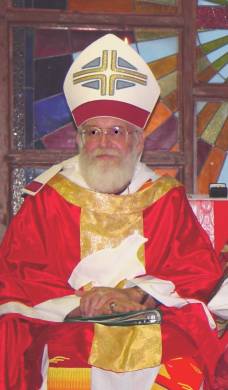
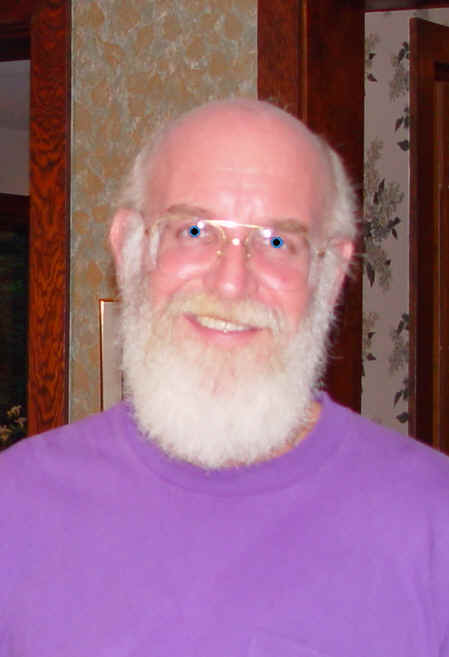
Lectio Divina
&
Centering Prayer
KEYS TO DEEPER COMMUNION WITH GOD
Our planet is waking up, the struggle for liberation is on, and a new global culture is emerging which yearns to be free from the enslaving political, ideological and religious constraints of the past. In Christ there is power, wisdom and grace to make the dream a reality. But centuries of religious repression and dogmatism have blinded many people to the liberating power of Christ. They are turning to non-Christian religions, the new age movement, and secular psychology for guidance.
Granted, the Church does not have a monopoly on wisdom, and there is useful knowledge to discover outside of her walls. But we who serve as shepherds to the flock have a responsibility to provide adequate spiritual direction for those who seek it. Our failure to do so has caused large numbers of our brothers and sisters in Christ to turn away from the Church. Spiritual seekers today are not content with moving church services and the preachers’ intellectual knowledge “about” God. They want to know God personally by direct experience. Divine union is the root of true liberation, and if the Church does not point the way, others will attempt to fill the gap drawing many sincere believers away from the Christian Tradition. To heal the breach and respond to the needs of modern seekers, we must revive the Christian contemplative tradition, offering it as a Christ-centered mysticism for all who seek direct communion with God.
Contemplative prayer is simply resting in God, silently absorbed in the Divine Presence, beyond thoughts, words, and images. Immersed in Divine Love, we forget ourselves, and a process of interior transformation begins, which leads, if we consent, to an abiding state of divine union. In this process, a total restructuring of consciousness occurs. We come to recognize and experience God within us, as the very ground of our being, and simultaneously, we begin to see God everywhere, in, through and beyond all that exists. We even discover God’s presence in the people we have felt most alienated from, and we find the ability to love and to serve them. Thus, contemplative prayer works to bring healing to a world torn by prejudice, hatred, and greed.
Contemplative prayer is a gift of God, a spontaneous unfolding of the grace of Christ within us, and no technique can produce it. But there are things we can do to prepare ourselves for the gift, instead of waiting for God to do it all. For instance, certain Eastern methods can help lay the groundwork for contemplation by calming the mind and harmonizing the body with the spirit (a possibility long ignored in the West). Some Eastern practices can also help us channel and integrate the spiritual energy released in contemplation. But Eastern traditions generally make the presumption that the proper spiritual technique will methodically and systematically produce Divine Union. In the Christian Tradition we understand and affirm boldly that communion with God is purely a gift of grace, by invitation only.
So while some Eastern methods and meditative practices are not harmful and may even be helpful, true contemplation is the fruit of our relationship with Christ, and cultivating that relationship must be our primary focus. One of the best ways to do this is the practice of lectio divina, literally “divine reading,” a way of prayer used by both monks and lay people in the first Christian centuries and the core of the Benedictine Prayer Tradition to this day. Lectio divina has four stages. It begins with 1) reading or listening a passage of Scripture (Latin: “lectio”), followed by 2) reflection or “meditation” on the text (Latin: “meditatio”), leading to 3) the spontaneous prayer of the heart as we communicate with God about what moved us during our reading and meditation (Latin: “oratio”), and finally to 4) interior silence also known as Contemplation or simply resting in the presence of God (Latin: “contemplatio”).
Initially, viewed as the normal experience of anyone practicing lectio, by the
sixteenth century, contemplation came to be regarded as something for only
extraordinary souls, and the contemplative tradition was suppressed. This
persisted well into the twentieth century, when widespread interest in Eastern
meditation and other forms of mysticism sparked a contemplative renewal in the
Church. From this emerged “Centering Prayer,” a contemporary presentation of
an ancient method used by the Desert Fathers to move from the first three phases
of lectio to the final stage of resting in God. It is especially helpful for
Western people whose tendency to be too analytical makes it difficult to move
from reflection to spontaneous prayer, and from spontaneous prayer to interior
silence.
To PRACTICE
CENTERING PRAYER:
1.
Choose a sacred word of one or two syllables which symbolizes your intention to
open and to surrender to the presence of God within. (The word could be Jesus,
Yahweh, Abba, Spirit, Peace, Silence, etc.).
2. Sit comfortably, with eyes closed. Silently introduce the sacred word as the
symbol of your consent to the presence and action of God within. (You need not
repeat it continually; it may fade out, become vague or disappear).
3.
If you are caught up in any thought, feeling or perception, very gently
release it, and return to the sacred word.
4.
At the end of the prayer time, remain in silence with eyes closed for a couple
of minutes, before resuming activity.
You will probably be aware of a continual stream of thoughts and images. This
is not an obstacle to centering prayer. Make no attempt to repress them. Just
keep letting them go, and rest in the presence of God, by returning ever so
gently to the sacred word.
Before you decide if centering prayer is working for you, commit yourself to do
it for at least twenty minutes, twice a day, for a month. Contemplative grace is
very subtle, and you may not perceive what is happening during the time of
prayer. So do not measure it by the experiences you have in prayer, but by the
fruit it bears in your life, the fruit of peace which comes from yielding daily
to God’s presence at the deepest core of your being.
If we balance the practice of Lectio Divina and Centering Prayer with faithful
participation in the liturgy and Sacraments of the Church, and a life of loving
service to others, we will be transformed and become healers of the Church and
of the world.
RECOMMENDED
READING:
Hall,
Thelma. Too Deep for Words: Rediscovering Lectio Divina (New York:
Paulist Press, 1988).
Keating, Thomas. Open
Mind, Open Heart (Continuum). The most
excellent book I know of on centering prayer!
Keating, Thomas. Invitation
to Love: The Way of Christian Contemplation (Continuum).
Everything
by Thomas Keating is highly recommended!
Copyright © 2003 Maclin R. Milner, Jr.
All Rights Reserved
Home What We Believe Apostolic Succession Bishops and Dioceses Centering Prayer History Intercommunion Contact Us
